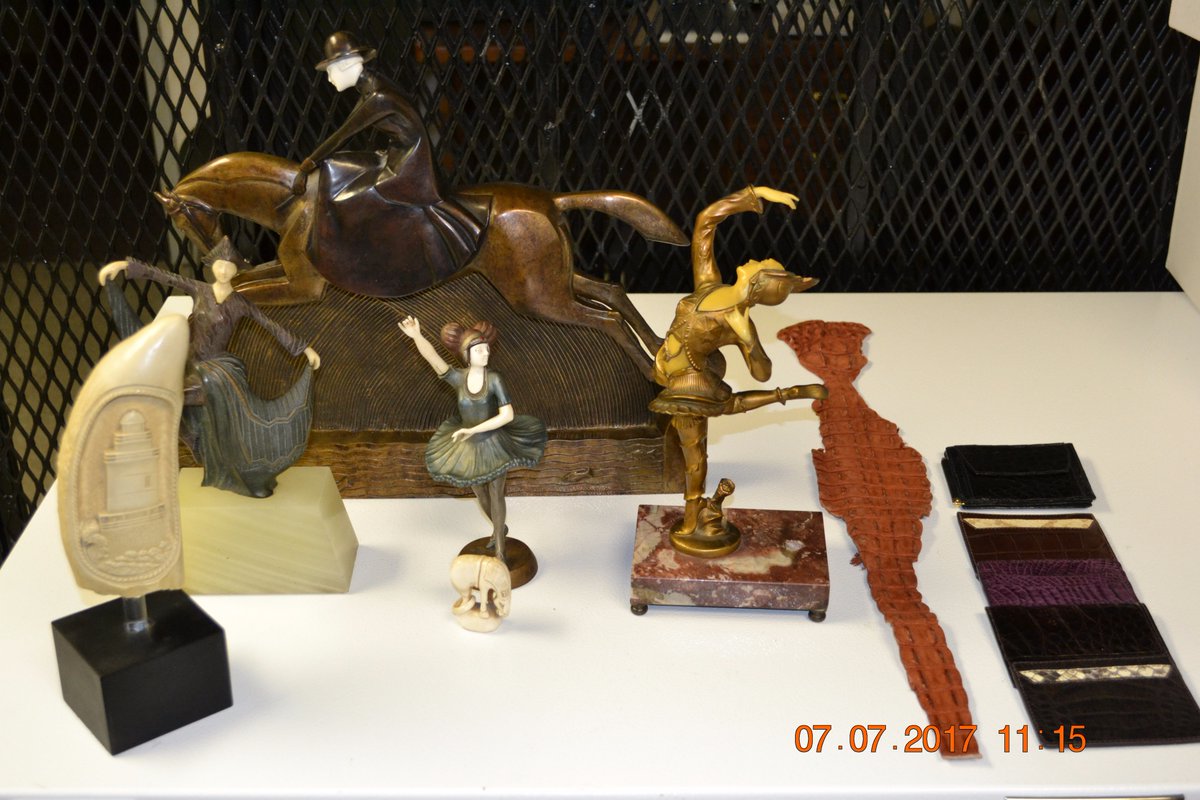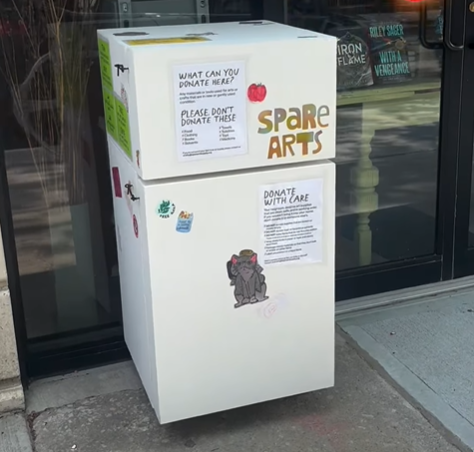A Long Island City art gallery illegally sold a sculpture made with elephant ivory, even though the sale of the material was banned by Governor Andrew Cuomo in 2014.
According to Queens District Attorney Richard A. Brown, Ro Gallery at 47-15 36th St. sold a ballerina sculpture made of elephant ivory to undercover investigators for more than $2,500 last month. Elephants are on the endangered species list and the sale of more than $1,500 worth of products made from elephant ivory is only allowed by obtaining a Department of Environmental Conservation (DEC) permit. Otherwise, the sale is considered a felony.
On May 30, two DEC undercover investigators visited the gallery and met with employee Jamie Villamarin, who showed them two ballerina sculptures made of ivory. He told investigators, “These are ivory, but we don’t list them as such because you can’t sell ivory.”
After following up to ask about pricing, the investigators went back to the gallery on June 14 and met with the owner Robert Rogal. He sold the piece to them for $2,612 in cash and then proceeded to show them another piece, which he priced at $3,600.
“I believe it is ivory,” he said. “They don’t even allow the sale of them [ivory].”
The investigators had the first item examined by an expert who confirmed that it was made of ivory. On July 6, officers executed a court-ordered search warrant and found several sculptures made of ivory and items believed to be made from the tooth of a sperm whale and crocodile skin.
“The arrest of these two individuals should send a strong message that illegally selling artifacts made from the ivory tusks of threatened elephants will not be tolerated in Queens County,” Brown said. “Buyers of such items should also be especially cautious and only buy from licensed retailers. Otherwise, they may be indirectly contributing to the extinction of one of the world’s most magnificent animals – the elephant.”
Jamie Villamarin and Robert Rogal were charged with violating two DEC laws – ECL 71-0924-3, which prohibits the sale of wildlife up to a certain amount, and ECL 11-0535, which prohibits the sale of wildlife on the endangered or threatened species list.
They face up to four years in prison if convicted and are ordered to return to court on Aug. 29.
Cuomo signed a new law in 2014, banning the sale of elephant and mammoth ivory and rhinoceros horns and added stricter penalties for buyers and sellers who break the law. The law does allow for the sale of antiques demonstrated to be at least 100 years old and containing less than 20 percent of ivory.
New York City was known to be a major player in the illegal ivory trade in the United States before this 2014 law was passed. The United Nations estimates that organized environmental crimes like the ivory trade are worth approximately $213 billion annually.
The Wildlife Conservation Society estimates that 96 elephants are killed every day by poachers for their ivory. The 2016 Great Elephant Census found that there are only 352,000 African savanna elephants still living, which represents a decline of 30 percent over the last seven years.
“Aggressively cracking down on the illegal market for ivory will help bring an end to the slaughtering of elephants and send a clear message that we will not allow this trade to continue in New York,” said DEC Commissioner Basil Seggos. “I commend our Environmental Conservation Officers who uncovered this case and applaud the work of the Queens County District Attorney Richard A. Brown and his staff for their swift actions in prosecuting these alleged criminals.”






































